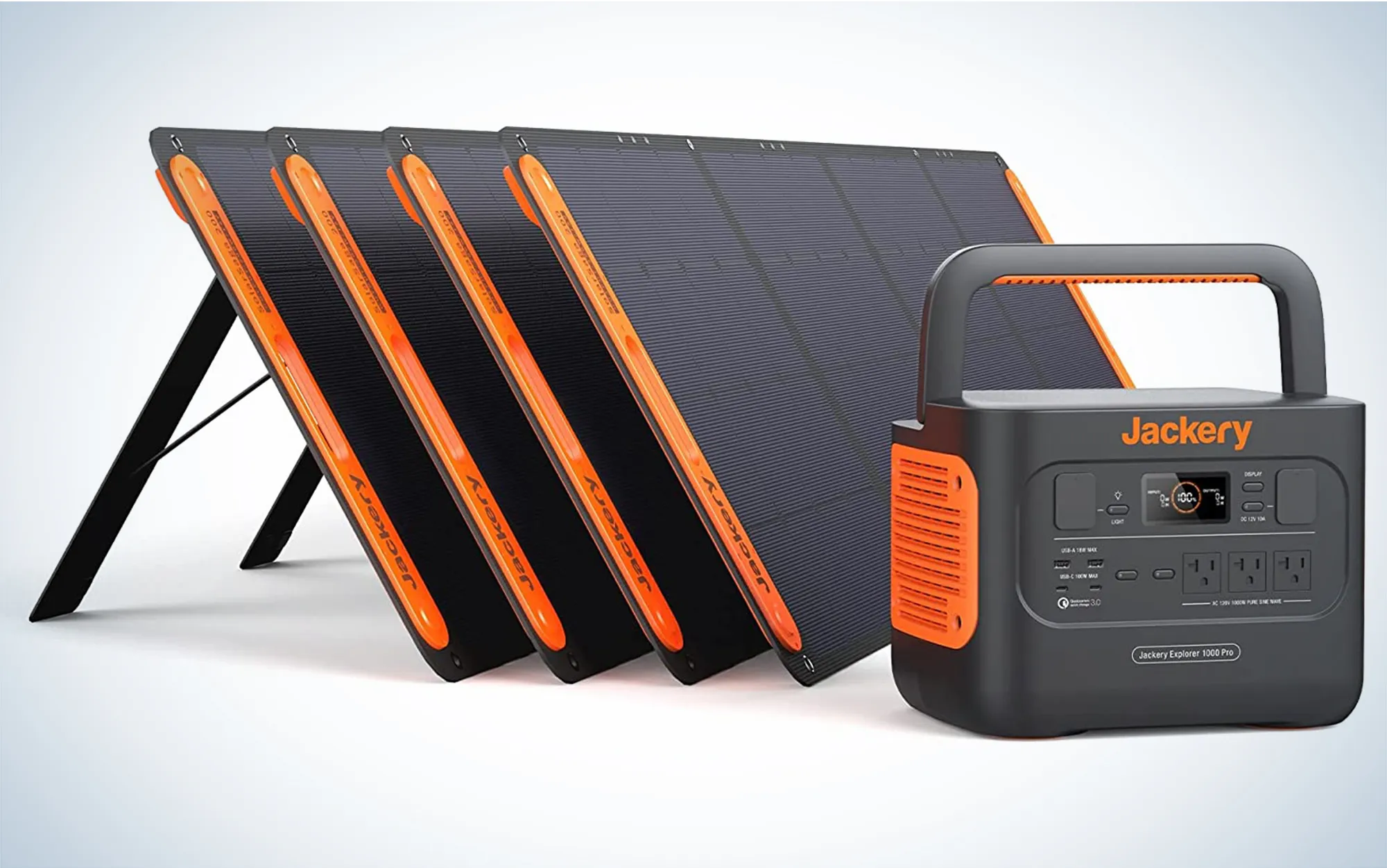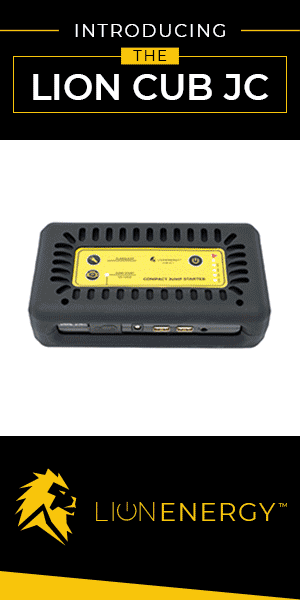Looking for the best solar generator for home backup? Discover the top options available to keep your essential appliances running smoothly during power outages.
Introduction
Looking for the best solar generator to power your home during unexpected power outages?
Look no further! In this article, we will explore the top options available to you, ensuring that you can keep your essential appliances running smoothly even when the grid fails.
Say goodbye to the inconvenience and uncertainty of blackouts, and say hello to reliable and environmentally friendly backup power with the best solar generator for home backup.
Let’s dive in and discover the perfect solution for your home’s energy needs!

Factors to Consider When Choosing a Solar Generator
When selecting a solar generator for home backup, there are several important factors to consider.
These factors will determine the reliability and effectiveness of the generator in providing power during emergencies or power outages. Here are the key factors to keep in mind:
Power Output
The power output of a solar generator is an essential consideration.
You need to determine how much power you require to run essential appliances and devices in your home during an outage.
Consider the wattage of the generator and match it with the power consumption of the appliances you intend to power.
It is advisable to choose a solar generator with a higher power output to ensure you can run multiple devices simultaneously.
Battery Capacity
Battery capacity is another crucial aspect to consider. It determines how long your solar generator can provide power without relying on sunlight.
A generator with a larger battery capacity will be able to supply energy for a longer duration.
Consider your power requirements and the average duration of power outages in your area to determine the suitable battery capacity for your needs.
Portability
Portability is an important factor, especially if you plan to use your solar generator for more than just home backup.
If you anticipate using it for camping trips or other outdoor activities, a portable option will be more convenient. Look for generators with lightweight designs and comfortable handles for easy transportation.
Charging Options
Solar generators can be charged in multiple ways, including solar panels, AC power outlets, and car chargers.
Consider the availability of sunlight in your area and whether you will have access to AC power during emergencies.
Additionally, check if the generator comes with the necessary cables and adapters for charging through different methods.
Durability
Durability is crucial when investing in a solar generator for home backup. You want a reliable and sturdy device that can withstand various environmental conditions.
Look for generators made with high-quality materials and those that offer features like water resistance and impact resistance. A durable solar generator will last longer and provide reliable power during emergencies.
Benefits of Using a Solar Generator for Home Backup
Using a solar generator for home backup offers several advantages:
Environmentally friendly
Solar generators utilize clean and renewable energy from the sun, making them an environmentally friendly choice.
Unlike traditional generators that run on fossil fuels, solar generators produce zero emissions, reducing your carbon footprint.
By choosing a solar generator, you contribute to a sustainable future and help minimize air pollution.
Cost-effective
Investing in a solar generator for home backup can lead to significant cost savings in the long run. Once you install the solar panels and purchase the generator, you can harness the power of the sun for free.
This eliminates the need to rely on expensive fuel sources, such as gasoline or propane. Over time, the savings on fuel costs can offset the initial investment and result in substantial savings.
Energy independence
By having a solar generator for home backup, you gain energy independence. You are no longer reliant on the grid or external power sources during emergencies or power outages.
This provides a sense of security, knowing that you have a reliable backup power solution whenever you need it.
With a solar generator, you can maintain essential functions in your home, such as powering lights, charging devices, and operating necessary appliances.
How to Install and Use a Solar Generator for Home Backup
Installing and using a solar generator for home backup requires careful planning and execution. Here are the steps to successfully install and use your solar generator:
Choosing the right location for installation
Select a location for your solar panels that receives ample sunlight throughout the day. Ideally, it should be a spot with minimal shade and obstruction.
Consider the orientation and tilt of the panels for maximum exposure to the sun’s rays. Ensure the location is easily accessible for maintenance and cleaning purposes.
Setting up the solar panels
Follow the manufacturer’s instructions to install the solar panels securely. This typically involves mounting them on a stable structure, such as the roof or ground.
Use appropriate hardware and take precautions to prevent any roof or structural damage. Connect the solar panels to the solar generator according to the provided instructions.
Connecting the generator to your home
Consult an electrician to ensure the proper connection of the solar generator to your home’s electrical system.
This involves installing a transfer switch to safely switch between grid power and solar power. The transfer switch prevents back-feeding and ensures the safety of both your home and the grid.
Understanding the user manual
Thoroughly read and understand the user manual provided with your solar generator.
It contains essential information about the operation, maintenance, and troubleshooting of the generator. Familiarize yourself with the various features, controls, and indicators to effectively use and maintain your solar generator.

Maintenance Tips for Solar Generators
To keep your solar generator in optimal condition and prolong its lifespan, follow these maintenance tips:
Cleaning the solar panels
Regularly clean the solar panels to remove any dirt, debris, or dust that may hinder their efficiency.
Use a soft cloth or sponge and non-abrasive cleaning solutions recommended by the manufacturer. Avoid using harsh chemicals or abrasive materials that could scratch or damage the panels.
Checking battery life
Monitor the battery life of your solar generator to ensure it remains in good health. Keep track of the battery capacity and charging cycles.
If you notice a decline in performance or decreased runtime, it may be time to consider battery replacement.
Testing performance
Periodically test the performance of your solar generator to ensure it is functioning properly.
Run a test by using various appliances and devices to assess the generator’s ability to meet your power needs. This will help you identify any issues or anomalies that require attention.
Replacing parts when needed
If any components or parts of your solar generator become damaged or malfunctioning, promptly replace them to maintain its optimal performance.
Consult the manufacturer or a professional technician for guidance on finding and replacing the necessary parts.
Common FAQs about Solar Generators for Home Backup
Here are answers to some frequently asked questions about solar generators for home backup:
How long can a solar generator power my home?
The duration a solar generator can power your home depends on various factors, including the generator’s battery capacity, the power consumption of your appliances, and the amount of sunlight available to recharge the generator.
Higher battery capacities can provide power for several hours or even days, while lower capacities may last for a few hours.
Monitoring your power usage and the generator’s battery level will help you estimate the duration of power supply.
Can solar generators charge during cloudy days?
Solar generators can still charge during cloudy days, although the charging efficiency may be reduced.
The panels will still generate electricity from the available sunlight, albeit at a lower rate. It is advisable to have sufficient battery capacity to store energy during sunny days, which can be used during cloudy periods or at night.
What happens to excess solar energy generated?
Excess solar energy generated by your solar generator can be stored in the battery for later use or directed back into the grid if you have a grid-connected system.
Some solar generators also have the capability to divert excess energy to other appliances or devices that may be consuming power at the time.
Are solar generators noisy?
Solar generators are typically quieter compared to traditional fuel-powered generators. Since they do not rely on combustion engines, there is minimal noise produced during operation. Solar generators are an ideal choice for those who value peace and quiet, especially during power outages or camping trips.
Conclusion
Choosing the right solar generator for home backup is essential for ensuring a reliable and sustainable source of power during emergencies or power outages.
Factors such as power output, battery capacity, portability, charging options, and durability should be carefully considered.
By utilizing a solar generator, you can enjoy the benefits of environmental friendliness, cost-effectiveness, and energy independence.
Proper installation, usage, and maintenance will ensure optimal performance and longevity of your solar generator.


